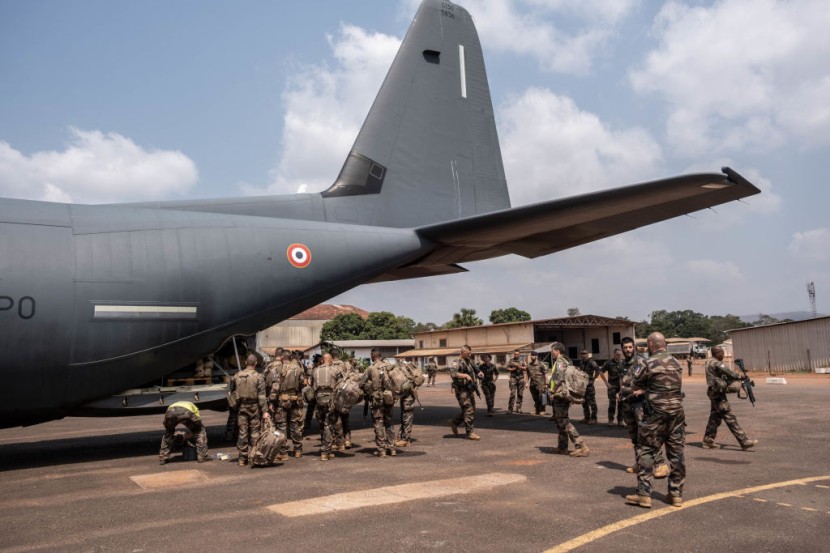The White House released declassified intelligence on Tuesday, revealing that the Russian mercenary organization Wagner Group has been preparing to offer air defense capabilities "to either Hezbollah or Iran."
National Security Council spokesperson John Kirby confirmed that Wagner was acting at the direction of the Russian government, as per to CNN News.
Wagner Group Plans to Help Hezbollah Air Defense

The downgraded intelligence, while not specifying the origin of the missile system, aligns with previous reports from CNN suggesting that Wagner had been tasked with delivering a surface-to-air SA-22 missile system from Syria to the Iran-backed militant group Hezbollah in Lebanon.
John Kirby, in a press briefing, highlighted the growing military ties between Russia and Iran, expressing concern over the Kremlin-backed Wagner Group's intentions to provide air defense support to Tehran-backed Hezbollah forces.
The White House's announcement follows repeated warnings by President Biden and other top US officials, cautioning against exploiting Israel's conflict with Hamas in Gaza. Israel, seeking to avoid an expanded front in Lebanon, faces additional challenges as US forces in the region report numerous attacks from Iranian-backed proxies.
"Our information further indicates that Wagner, at the direction of the Russian government, was preparing to provide an air defense capability to either Hezbollah or Iran," Kirby stated. He emphasized that the US would closely monitor Wagner's actions and is prepared to use counterterrorism sanctions against Russian individuals or entities involved in destabilizing transfers, according to Mail Online.
Wagner Group Delivers SA-22, Deepens Iran-Russia Ties
Previously, CNN reported that Wagner Group, once led by the late Putin ally-turned-rival Yevgeny Prigozhin, was instructed to deliver SA-22 missile defense systems to Hezbollah forces in Lebanon. The Tehran-backed group possesses a formidable military presence and tens of thousands of missiles.
Kirby also outlined Iran's military ties with Russia, including a deal for the purchase of SU-35 fighter jets, along with efforts to acquire attack helicopters, radars, and other equipment. This year, Iran finalized the agreement to buy SU-35 fighter jets and is seeking additional military equipment from Russia, amounting to billions of dollars, to bolster its military capabilities.
The White House spokesperson warned of potential sanctions against the heavily sanctioned Russian government, signaling the US commitment to preventing destabilizing transfers by Wagner.
As tensions escalate in the Middle East, the US administration is closely monitoring the situation, particularly the potential transfer of air defense capabilities to Hezbollah or Iran. Cross-border clashes between Israel and Hezbollah in southern Lebanon have intensified, raising concerns about a possible new front in the conflict.
The Biden administration has positioned aircraft carriers and troops in the region as a deterrent. The White House is "concerned" that Iran could escalate its support for Russia's campaign in Ukraine, potentially providing Moscow with ballistic missiles to target Kyiv's forces.
While the international community grapples with these geopolitical challenges, President Biden faces resistance from right-wing Republicans in Congress regarding his request for over $61 billion in emergency funding for Ukraine, part of a more significant $106 billion funding request encompassing defense spending on Israel, Taiwan, and bolstering the US border with Mexico, Telegraph reported.
Related Article: Mars Hiding Behind Sun for 2 Weeks - But Why?
© 2026 HNGN, All rights reserved. Do not reproduce without permission.








